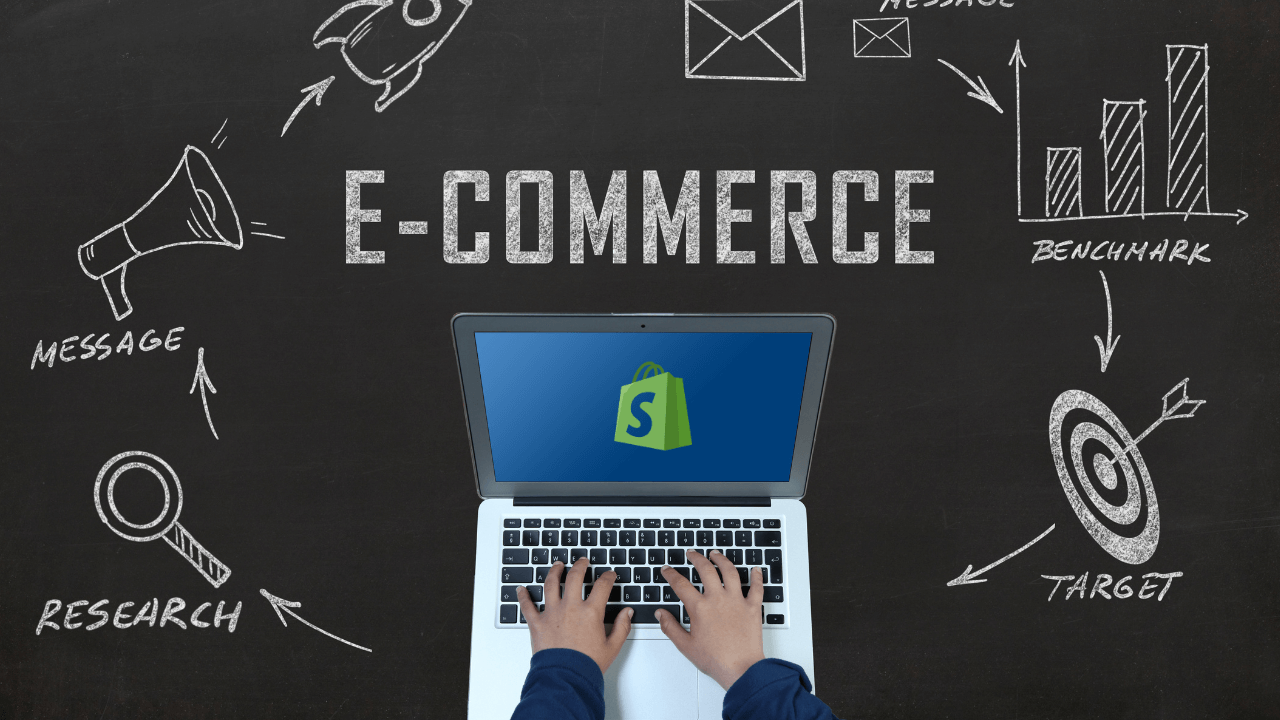Language:
How to Start an Ecommerce Business in the USA

Startups in the USA are having a moment, and the numbers prove it.
Nationally, the number of startups—businesses that are less than a year old—jumped by 16% between 2019 and 2023. To put that into perspective, that’s over 2.5 times the growth rate from 2015 to 2019.
Now that’s quite a sharp uptick in business formation, don’t you think?
This boom is pulling in all kinds of entrepreneurs. From ecommerce to niche ventures like urban mushroom farming (yes, that’s a thing!), people everywhere are itching to start their dream business.
Naturally, they’re reaching out to formation agencies, scouring the internet for guidance, and even consulting ChatGPT to figure out how to start a business in the USA.
But there’s too much information out there. Too many guides. Too many formation agencies. And way too many conflicting pieces of advice that leave you scratching your head instead of making progress.
So, here’s the plan. In this blog, we’re going to clear this murkier area and give you clear, no-fluff steps to answer that big question: how to start an ecommerce business in the USA. We’ll save those niche ideas (like mushroom farming!) for another day.
Ready to get started? Let’s dive in.
Why Start an Ecommerce Business in the USA?
Here’s why the USA is one of the best places to launch your ecommerce dream:
1. Large and Diverse Consumer Market
The USA has a massive population of over 330 million people with diverse demographics and spending habits. This means there’s a market for almost every product or niche you can think of—from mainstream to highly specialized items.
Ecommerce Stats: According to the USA Census Bureau, ecommerce sales in the USA surpassed $1.03 trillion in 2022, growing 7.7% from 2021. In 2023, USA ecommerce sales reached over $1 trillion, showing sustained growth year after year.
This trend continues upward, driven by a strong preference for online shopping
Consumer Behavior: With internet penetration at 92% (Statista, 2023), nearly every adult in the USA has access to online shopping, opening up endless possibilities for ecommerce businesses.
2. Well-Developed Logistics and Shipping Infrastructure
The USA’s established shipping and logistics systems make it easy to deliver products quickly and reliably across the country and globally.
Robust Shipping Networks: Services like USPS, FedEx, and UPS offer end-to-end logistics solutions, ensuring fast and affordable delivery options for ecommerce businesses.
Fulfillment Centers: Companies like Amazon provide infrastructure for small businesses to store, pack, and ship products efficiently via programs like Fulfilled by Amazon (FBA).
3. Entrepreneur-Friendly Legal Environment

The USA has a supportive environment for entrepreneurs with a straightforward process to form businesses.
LLC Formation Benefits: Forming an LLC in the USA is relatively simple, and services like doola can make it even easier. An LLC offers liability protection and tax benefits, which are especially important for small ecommerce businesses.
Ease of Starting a Business: The World Bank’s “Ease of Doing Business” index consistently ranks the USA high for starting and operating businesses, particularly in ecommerce.
4. Access to Cutting-Edge Tools and Technology
The USA provides unparalleled access to the latest ecommerce platforms, marketing tools, and analytics, which simplifies operations and maximizes growth.
Platforms: Shopify is a leading example —with over 4.4 million live stores in the USA, as of 2023— of how easy it is to start and run an online store.
Marketing and Analytics: Tools like Google Analytics, Facebook Ads Manager, and HubSpot allow businesses to understand and target their customers effectively.
5. Growth Potential for Global Expansion
Starting an ecommerce business in the USA doesn’t limit you to just the domestic market—it positions you to scale globally.
Global Reach: USA-based ecommerce businesses benefit from partnerships with global shipping providers and platforms like Amazon, which operate worldwide.
Ready to turn those reasons into action? If you’re convinced it’s time to start your business in the USA, let’s dive straight into how to start an ecommerce business in the USA and get you one step closer to your dream!
Step-by-Step Guide to Starting an Ecommerce Business in the USA
Before you start selling, there’s one big thing to tick off your list: forming an LLC (Limited Liability Company). Don’t worry, it’s not as intimidating as it sounds. We’ll walk you through the steps so you can get this done without overthinking it.
Step 1: Choose a Name for Your LLC
Your business name is your first impression, so make it count. Here’s what to keep in mind:
- Uniqueness: Check that your desired name isn’t already taken in your state. Use your state’s business name database to verify this.
- LLC Requirement: Your business name must include “LLC” or “Limited Liability Company” at the end.
💡 Pro Tip: Go for something memorable, but also relevant to your ecommerce niche.
Step 2: Appoint a Registered Agent
A registered agent is basically your go-to person (or service) for handling legal and official documents for your LLC.
Who Can Be a Registered Agent?
Someone in your company, yourself, or a professional registered agent service like doola.
Step 3: File Articles of Organization
This is the official step that makes your LLC legit. You’ll need to file your Articles of Organization with your state’s Secretary of State.
What You’ll Need:
- Your business name and address.
- Information about the LLC members (owners).
- Your registered agent details.
Cost: Filing fees vary by state, ranging from $50 to $500.
Most states allow online filing, so it’s quick and hassle-free.
Step 4: Create an Operating Agreement
While this isn’t legally required in every state, it’s highly recommended. An Operating Agreement outlines how your LLC will run, including:
- Ownership percentages.
- Decision-making processes.
- Profit and loss distribution.
Step 5: Get an EIN (Employer Identification Number)
EIN is issued by the IRS and is essential for:
- Opening a business bank account.
- Filing taxes.
- Hiring employees (if you plan to scale).
You can apply for an EIN online for free on the IRS website or let doola help you get your EIN number.
Step 6: Open a Business Bank Account
Keep your personal and business finances separate—it’s not just good practice, it’s essential for tax and legal reasons.
What You’ll Need:
- Your EIN.
- LLC formation documents.
- Your Operating Agreement.
💡 Pro Tip: Consider digital banking options like Mercury which cater to ecommerce businesses.
Step 7: Stay Compliant with Taxes
If you’re selling physical products, you’ll need to collect and file sales tax. The rate and rules depend on the states where you operate. Some states require you to file an annual report to keep your LLC in good standing.
💡 Pro Tip: Use a bookkeeping service (like doola Bookkeeping) to stay on top of your finances and compliance.
Step 8: Launch Your Ecommerce Store
Once your LLC is officially set up, it’s time to bring your ecommerce vision to life:
- Choose your platform: Shopify, BigCommerce, or WooCommerce are great options.
- Set up payment processing: Use services like PayPal or Stripe.
- Market your business: Dive into social media, SEO, and email marketing to attract your first customers.
If this process feels like too much to handle on your own, doola can take care of the grunt work. From LLC formation to bookkeeping, we are here to simplify the backend processes. All you have to do is book a free consultation with our top LLC experts.
Essential Tools and Resources for Ecommerce Businesses
To run a successful ecommerce business, you need the right tools to streamline operations, manage finances, and enhance customer experience.
Here’s a curated list of essential tools for every key area of your ecommerce business.
Best Platforms for Building Your Store
Shopify
Whether you’re a beginner or a seasoned seller, Shopify simplifies store management so you can focus on selling.
One of the most user-friendly and versatile platforms for building your ecommerce store, Shopify provides everything you need to launch and grow your business, from customizable themes to integrated payment processing and marketing tools.
Plus, with its app ecosystem, you can add features like live chat or advanced analytics with just a few clicks.
Payment Gateways and Financial Tools
PayPal
PayPal is a globally recognized payment gateway that makes it easy to accept payments securely from customers worldwide. It supports credit and debit cards, bank transfers, and even PayPal Credit, giving your customers multiple payment options.
With robust fraud protection and instant payment notifications, it’s a must-have for ecommerce businesses looking to provide a seamless checkout experience.
Inventory and Order Management Tools
TradeGecko
TradeGecko is an inventory and order management tool designed to simplify your back-end operations. It allows you to track stock levels in real-time, manage multiple sales channels, and automate order fulfillment.
Ideal for ecommerce businesses that deal with high inventory turnover, it helps you avoid stockouts and keep customers happy.
Bookkeeping Tools
doola
doola is the perfect bookkeeping solution for ecommerce entrepreneurs who want to stay on top of their finances without the hassle. doola offers dedicated bookkeepers and easy-to-use tools for tracking income, expenses, and taxes.
It’s specifically designed to keep your ecommerce business compliant and running smoothly, so you can focus on growth. With doola, tax season becomes stress-free, and you gain valuable insights into your financial health.
Common Challenges When Starting an Ecommerce Business (and How to Overcome Them)

From figuring out how to start an ecommerce business in the USA to managing the unexpected hurdles that come your way, it can feel exhausting. But don’t worry; every challenge comes with a solution.
Let’s break down some of the common struggles and how you can tackle them head-on.
Challenge 1: Navigating Legal Requirements
When you’re just starting, figuring out the legal side of things—like forming an LLC, registering your business, and understanding tax obligations—can feel overwhelming.
You’re probably Googling “how to start an ecommerce business in the USA” and getting hit with a flood of information that’s all over the place. But that can confuse you even more.
How to Overcome It
- Form an LLC: This protects your personal assets and gives your business credibility. doola makes it super easy by handling all the paperwork for you.
- Stay Compliant: Make sure you understand sales tax requirements in the states you plan to sell in.
Challenge 2: Finding the Right Ecommerce Platform
You know you need a platform to host your store, but the options are endless—Shopify, WooCommerce, BigCommerce—and each promises to be the “best.” How do you decide?
How to Overcome It
Think about what matters most for your business:
- Ease of Use: If you’re not super tech-savvy, Shopify is excellent with its drag-and-drop simplicity.
- Scalability: For growing businesses, BigCommerce offers advanced tools for handling larger inventories.
- Flexibility: WooCommerce is great if you want full control and already love WordPress.
Start small, and remember, your platform should grow with you—not hold you back.
Challenge 3: Handling Finances
Bookkeeping and tax compliance are never going to be the interesting bits of running an ecommerce business, but they’re absolutely necessary. Missing deadlines or mismanaging funds can create major roadblocks.
How to Overcome It
Hire a professional like doola Bookkeeping to manage your income, expenses, and tax filings. With automation and expert help, you’ll avoid costly mistakes and penalties.
Challenge 5: Delivering a Great Customer Experience
It’s not enough to get people to your store—you need to keep them happy. Late deliveries, confusing return policies, or poor customer service can drive people away, even if your products are great.
How to Overcome It
- Offer Clear Policies: Be upfront about shipping times, costs, and return processes.
- Invest in Customer Support: Use chatbots or hire a team to respond to inquiries quickly.
- Work with Reliable Shipping Partners: FedEx, UPS, and USPS all offer excellent options for ecommerce businesses.
Remember, a seamless customer experience builds trust and creates loyal buyers.
Let doola Help You Build Your Ecommerce Dream

Starting an ecommerce business in the USA might seem overwhelming, but it doesn’t have to be.
doola is here to help entrepreneurs like you form LLCs, stay compliant with taxes, and manage bookkeeping — all the behind-the-scenes work that can eat up your time.
Whether you’re just getting started or scaling up, doola has the experts and tools to make your journey seamless.
Ready to launch your ecommerce dream? Book a free consultation with doola today!
FAQs About Starting an Ecommerce Business in the USA

How much does it cost to start an ecommerce business in the USA?
The cost of starting an ecommerce business can vary widely depending on the type of business you’re launching. Here’s a breakdown of the typical costs:
- Ecommerce Platform: Platforms like Shopify or WooCommerce cost around $29–$79/month, depending on the features you need.
- Business Formation: Setting up an LLC can range from $50 to $500 in filing fees, depending on your state.
- Inventory: If you’re holding stock, the initial investment could be anywhere from a few hundred to several thousand dollars. Dropshipping businesses, on the other hand, can have much lower upfront costs.
- Marketing: Paid ads and marketing tools can add another $100–$500/month to your budget when starting out.
- Miscellaneous Expenses: Domain registration ($10–$20/year)— we recommend Godaddy, hosting (if not included with your platform), and accounting software are other costs to consider.
Do I need a physical office for an ecommerce business?
No, you don’t need a physical office to run an ecommerce business in the USA. Most ecommerce businesses operate entirely online, allowing you to work from home, a co-working space, or anywhere with a stable internet connection.
How long does it take to get started?
The timeline to start your ecommerce business depends on how prepared you are and the type of business you’re setting up:
- Forming Your LLC: Filing your LLC with your state can take anywhere from a few days to a few weeks, depending on the state’s processing times. Services like doola can expedite the process.
- Building Your Store: Setting up your ecommerce platform (e.g., Shopify) can be done in a day or two if you have your products, branding, and content ready.
- Launching: Once your store is live, it’s all about driving traffic and fulfilling orders—which you can do as soon as your store is operational and payment systems are in place.
On average, you can expect the entire process—from business formation to store launch—to take about 2–4 weeks with the right resources.



